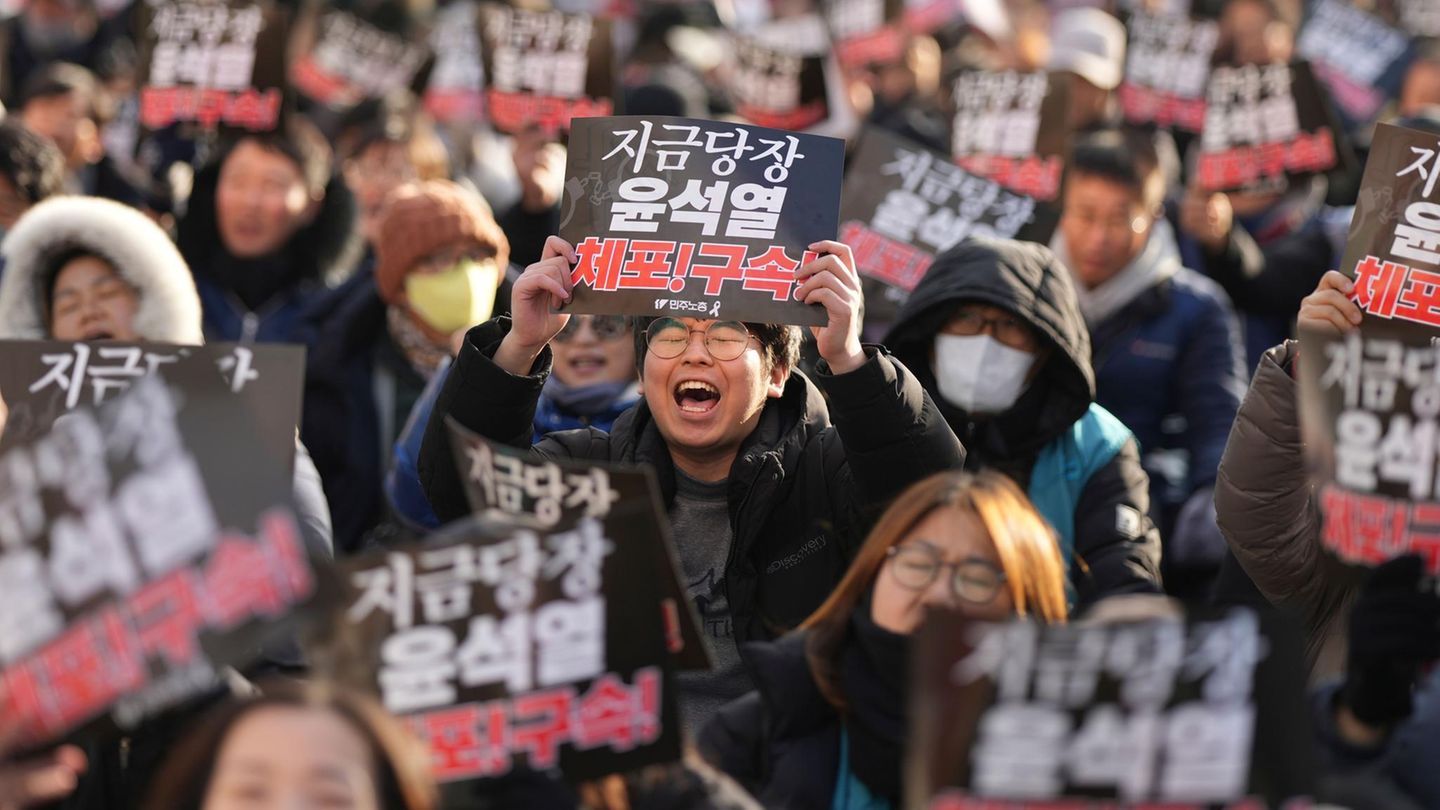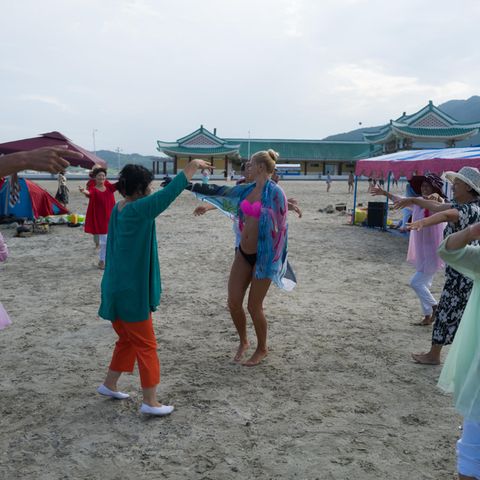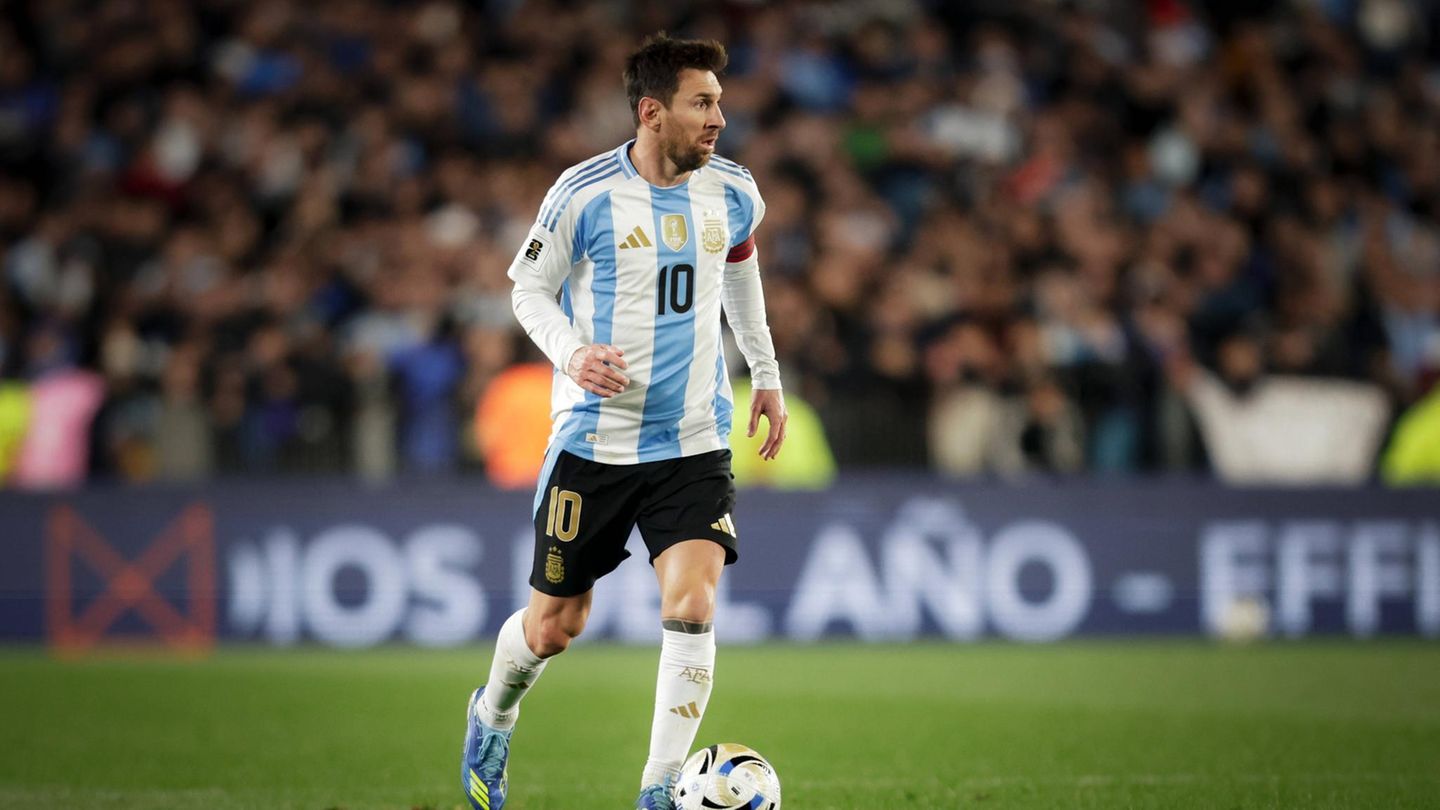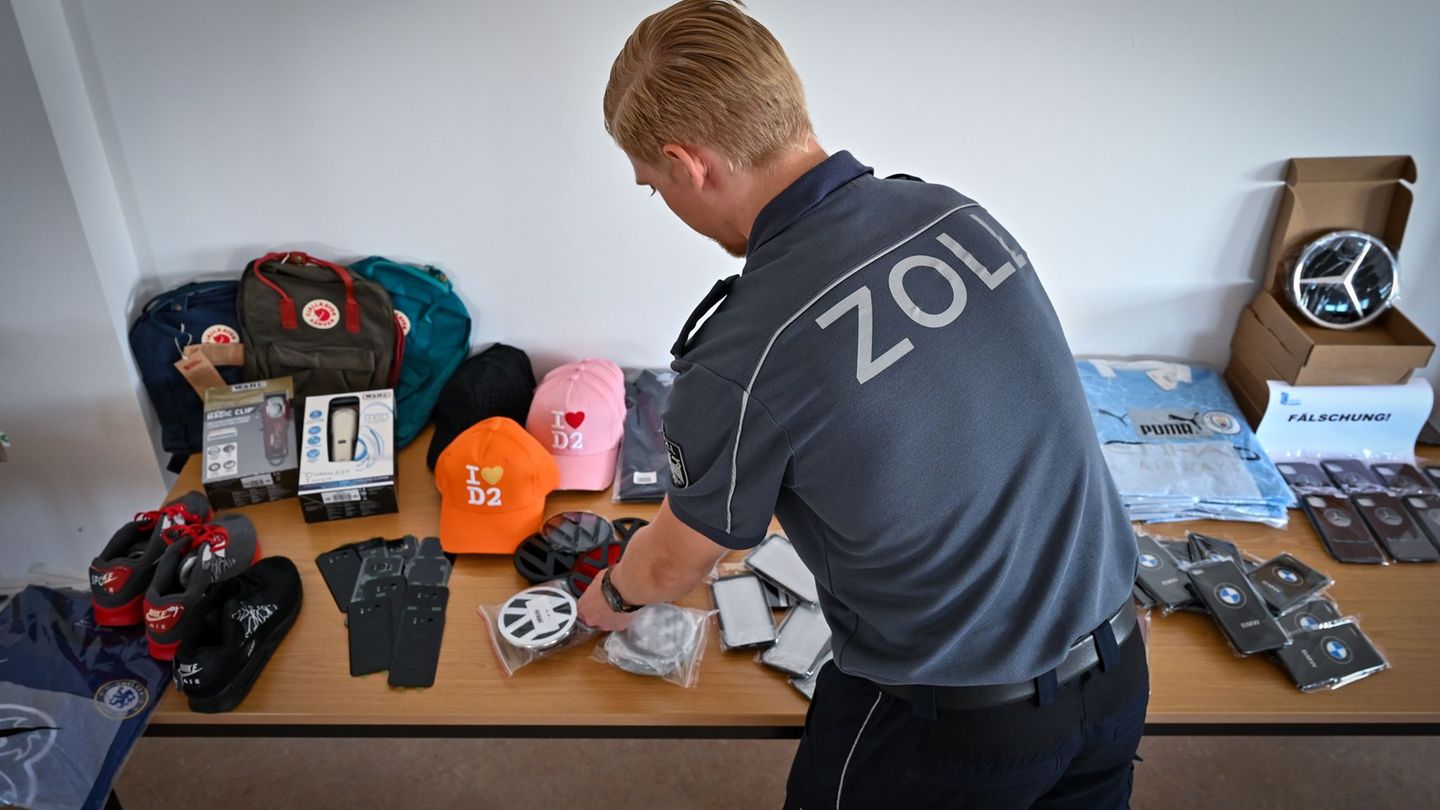Questions & Answers
A president who should be arrested – everything about the crisis in South Korea
Copy the current link
After declaring martial law, Yoon Suk Yeol, the president of South Korea, was suspended. Now he should be arrested. The backgrounds.
Why should President Yoon Suk Yeol be arrested?
At the beginning of December, Yoon unexpectedly declared martial law. The reason for this was not a state of emergency, but a dispute over the state budget in parliament, in which the opposition has the majority. Yoon apparently wanted to take tough action: he is said to have even ordered the military to use weapons if necessary to storm the democratically elected parliament. According to his nebulous justification, “anti-state forces” were operating in the people’s representation. However, the MPs used their veto right in a dramatic session, and Yoon had to withdraw martial law after just a few hours.
The action by the now suspended president plunged South Korea into its worst political crisis in decades and triggered weeks of mass protests in the capital Seoul. Yoon then apologized for the martial law imposed, promised it wouldn’t happen again – and apparently hoped to just move on.
However, the apology was not enough for the Koreans. South Korea has only been a democracy since the late 1980s; the country has a long history of violent and military rule, censorship and suppressed resistance. The Koreans didn’t want to go back there. Thousands took to the streets to demand the president’s removal. An impeachment initially failed, but the persistent protests also triggered a rethink in the People Power Party, which forms the government: Twelve MPs voted with the opposition for Yoon’s impeachment. Since then, the public prosecutor’s office has been investigating the suspended president together with the police, the Ministry of Defense and the anti-corruption agency. However, Yoon refused to cooperate with the authorities. Because he failed to appear for questioning three times, investigators issued an arrest warrant for Yoon, who had previously been a prosecutor himself.
Why did the arrest fail?
Yoon and his lawyers are fighting against the arrest with all their might. They argue that the arrest warrant is illegal and therefore ineffective. Yoon can still count on supporters: his supporters have been gathering in front of his official residence for days. Yoon had leaflets distributed there: “Korea is currently in danger because anti-state forces threaten national security from both inside and outside,” he spread. Inside the residence, a military unit and bodyguards defended the deposed president, who is suspended but still has the right to security guards.
The Presidential Security Service (PSS) continues to protect Yoon and apparently follows him loyally. A hundred police officers moved in to take the politician away, but were powerless against Yoon’s guard. They didn’t even come into the house for several hours. The authorities later had to withdraw without success. “We have determined that the execution of the arrest warrant is virtually impossible due to the ongoing confrontation and have suspended its execution out of concern for the safety of personnel due to the resistance,” the anti-corruption agency said in a statement. The police now want to take action against the commanders of the presidential guard, so further arrest warrants may be outstanding. Meanwhile, outside, two demonstrations were irreconcilably opposed: critics demanded arrest, supporters demanded that the arrest warrant be suspended.
What’s next?
The arrest warrant is valid until next Monday: The investigators are now discussing whether they will try again. The number of demonstrators will probably continue to grow at the weekend – so the unrest will not diminish. The South Korean Constitutional Court will meet in mid-January and decide whether the president’s impeachment was legal. If the dismissal remains, new elections will be held within 60 days.
What does the conflict say about South Korea’s society?
Hardly any other country has achieved such rapid economic growth in just a few decades as South Korea. In the 1960s, the former military dictatorship was still considered an impoverished developing country. Today, democratic South Korea is not only one of the most successful economies in the world, but also stands for impressive cultural soft power. It not only exports cars, cell phones and household technology, but is also known for K-pop, films and series. Apart from this success story – perhaps because of it – people in the country are struggling with social problems: wealth gap, rising rents and real estate prices, unemployment. South Korea also has the world’s lowest birth rate.
The conservative Yoon has never been particularly popular; he won the 2022 elections by a razor-thin margin. From the beginning, Yoon was therefore considered a weak president. The opposition had the majority in parliament and also won the elections last year by a clear margin. Both camps blocked each other.
All Yoon could do was use the Koreans’ dissatisfaction to cast blame that further divided the country: against migrants, feminists, and the opposition.
And what role does North Korea play?
Dealing with its highly armed neighbor and its unscrupulous dictator Kim Jong Un has traditionally been controversial in South Korea, probably because there is no real solution. While the socially liberal Moon Jae In, Yoon’s predecessor, had focused on rapprochement, Yoon accused him of exactly that: Moon had repeatedly allowed himself to be shown off and taken advantage of and had not prevented North Korea’s rearmament. Yoon stands for a tough course and rearmament. The opposition, he suggested, was infiltrated by North Korean communists and enemies of the state. According to one of the conspiracy theories he spread, hackers from North Korea even secured victory for the opposition in last year’s parliamentary elections.
The opposition in turn accused Yoon of being close to Japan, the former occupying power. The criminal prosecution of Yoon is in the South Korean tradition: Presidents have been prosecuted several times after the end of their term of office. Despite the division, the crisis also has positive consequences: the people of South Korea showed impressively that, despite all the problems, a return to the old days is unthinkable for them. They took to the streets and declared their support for democracy.
Source: Stern
I have been working in the news industry for over 6 years, first as a reporter and now as an editor. I have covered politics extensively, and my work has appeared in major newspapers and online news outlets around the world. In addition to my writing, I also contribute regularly to 24 Hours World.





